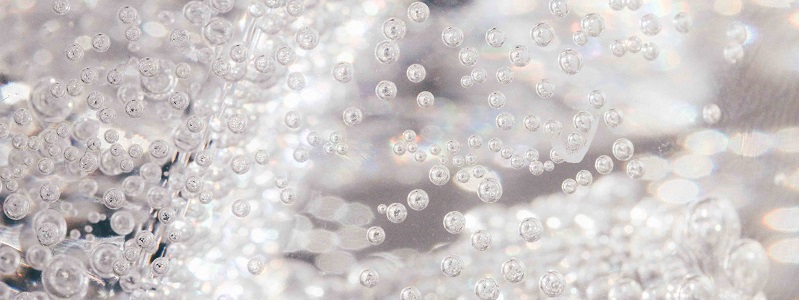I am a fan of carbonated water, so I had to find out if I am harming myself by drinking it. I have developed ideas of why I may crave it, so I set myself to checking it out.
What is it?
Carbonated water is also called fizzy water or sparkling water. It is simply water in which carbon dioxide gas is infused making it effervescent. Some of the gas stays as bubbles and some of it becomes carbonic acid. This makes the liquid slightly acidic, but it is quickly neutralized by saliva in the mouth.
Since I am such a fan of carbonated water, I decided to get a home carbonator for several reasons:
- I can control the quality of water I drink (Natural Action Structured water)
- I save money per ounce, especially when I buy CO2 cartridges in bulk.
- I can add a wide variety of flavorings and avoid high fructose corn sugar and artificial flavorings.
- It reduces waste and pollution from purchasing it in plastic bottles (then having to recycle them.)
Differences in Carbonated Waters
If you go to the store to get carbonated water, you may be confused when you get to the shelves and before you look at ingredient lists. Yes, there can be quite a few ingredients in some fizzy water products! Here is a survey of the differences so you can choose what you actually want.
Sparkling Mineral Water
Water that resides in underground aquafers is naturally filtered and absorbs minerals as it rises from a spring. Each mineral water can be measured at its spring source for those minerals. Each one is characterized by a constant level and relative proportions of those minerals and trace elements. Common minerals include calcium, potassium, magnesium, sodium, chloride and sulfur.
Some sparkling mineral waters have natural carbonation, and most add more carbonation to reach the desired fizzy quality.
Common brands are (see the 10 best here)
- Perrier
- San Pellegrino
- Voss Sparkling
- Crystal Geyser
- Saratoga Spring
Seltzer Water
This carbonated water was first produced in the German city of Selters which is renown for its natural springs. It is water with artificially added carbonation, carbon dioxide gas.
It was initially produced as a cheap alternative to sparkling mineral water and it still can be an economical option today.
Club soda
Club soda could be mistaken for seltzer water except for a slight difference in taste. Mineral salts are added to carbonated water to make club soda in order to enhance the flavor. The most common added mineral salts are potassium bicarbonate and potassium sulfate.
Tonic Water
The distinct flavor of tonic water is due to the bitter taste from the addition of quinine. A sweetener like high fructose corn syrup or cane sugar is added to offset that taste. Therefore, this variety of carbonated water is often used as a drink mixer such as with gin.
Because of the sweetener and quinine, tonic water should not be used interchangeably with other carbonated waters. It has more of the qualities of soft drinks than carbonated water.
Quinine has been used medicinally for leg cramps caused by vascular spasm, internal hemorrhoids and varicose veins. It was originally used to treat malaria, but the amount of quinine in tonic water is not a medicinal dose.
Health Benefits of Water
Whether carbonated or not, water
- provides hydration
- reduces fluid retention
- moves nutrients throughout your body
- keeps you feeling full between meals
However, carbonated water has these advantages:
- substitutes for soft drinks
- makes you feel full and therefore decrease overall food consumption
- the taste and texture of carbonated water may lead you to drink more than regular water
Medical benefits of Carbonated Water
In a 2002 study, compared to regular water, carbonated water:
- improves upset stomach / pain or discomfort in the upper belly
- improves constipation
- improves gallbladder emptying
In addition, carbonated water may improve feelings of satiety
Compared to colas or soft drinks, carbonated water
- did not reduce bone mineral density
- barely affected the acidity of the mouth
- 100 times less tooth enamel erosion than soft drinks, not a significant level
The only drawbacks to carbonated water compared to regular water
- possible burping
- may give flatulence
- may have bloating and discomfort with irritable bowel syndrome
Are you a fan?
Do you drink carbonated water? What kind?
What benefits have you appreciated?




